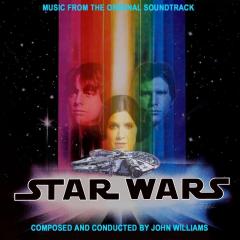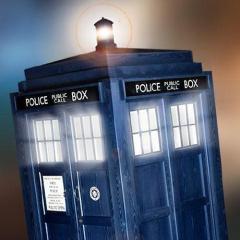-
Posts
3,726 -
Joined
-
Days Won
11
Glóin the Dark last won the day on October 26 2021
Glóin the Dark had the most liked content!
Recent Profile Visitors
-
 Glóin the Dark reacted to a post in a topic:
General movie chitchat
Glóin the Dark reacted to a post in a topic:
General movie chitchat
-
 Tallguy reacted to a post in a topic:
General movie chitchat
Tallguy reacted to a post in a topic:
General movie chitchat
-
Reminds me of the story a couple of years ago when the Culture Secretary of the UK had a meeting with Microsoft executives and reportedly asked them when they were going to get rid of algorithms.
-
 JTN reacted to a post in a topic:
What Is The Last Film You Watched? (Older Films)
JTN reacted to a post in a topic:
What Is The Last Film You Watched? (Older Films)
-

What Is The Last Film You Watched? (Older Films)
Glóin the Dark replied to Mr. Breathmask's topic in General Discussion
A fifteen year old one. -
No question which comes first on my list. I haven't seen The Color Purple or Empire of the Sun for more than three decades and have lost any clear idea of what I felt about them, so I've left them off. Any others not on the list I haven't seen at all. Green and red indicate strong impressions, positive and negative respectively. Jaws Raiders of the Lost Ark Schindler's List Close Encounters of the Third Kind Duel Indiana Jones and the Last Crusade E.T. The Extra-Terrestrial Lincoln Jurassic Park Saving Private Ryan Bridge of Spies War of the Worlds A.I. Artificial Intelligence Munich Catch Me if You Can The Fabelmans Indiana Jones and the Kingdom of the Crystal Skull Minority Report Always Indiana Jones and the Temple of Doom Hook Ready Player One The Post War Horse
-

What Is The Last Film You Watched? (Older Films)
Glóin the Dark replied to Mr. Breathmask's topic in General Discussion
I agree, and, conversely, if there were half a dozen film portrayals of female conductors, all of them predominantly negative, that would surely reflect some sort of worrying underlying prejudice. But when there's only one, it can't be expected to be representative, and shouldn't be required to be. It would be absurd to insist that, for every group X, a negative portrayal of a character included in X is only permissible once a sufficient number of positive ones already exist. I know - I repeated it only by way of expressing what it is about Alsop's apparent attitude that I object to. There's a bit more of it here. -
 Chen G. reacted to a post in a topic:
What Is The Last Film You Watched? (Older Films)
Chen G. reacted to a post in a topic:
What Is The Last Film You Watched? (Older Films)
-

What Is The Last Film You Watched? (Older Films)
Glóin the Dark replied to Mr. Breathmask's topic in General Discussion
Yeah, but only because there's only one such film, so the word "every" isn't signifying much. Maybe - I'm happy enough to have my views called "extreme"! Moderation is overrated, and I wasn't criticising Alsop's comments for their extremeness... All the same, I think the comparison is a poor one. There's nothing in Tár to suggest that the makers intend us to extrapolate Tár's negative traits (to women in general, or to lesbians, or to conductors), and I haven't seen Alsop argue otherwise; it's just an individual who happens to belong to those groups. As such, Alsop's castigation of the film for failing to use the opportunity to portray such a character in a positive light amounts to a prescriptive attitude to the purpose and function of films (or some of them), and that is what I find reprehensible. -

What Is The Last Film You Watched? (Older Films)
Glóin the Dark replied to Mr. Breathmask's topic in General Discussion
It's always understandable and perfectly legitimate for someone to hate a portrayal of themselves, or even one which is suggested to be partially based on or vaguely inspired by them (whether the suggestion is correct or not). But Alsop's complaint about the offensiveness of Tár (the implied unacceptability of depicting such a character in a negative light) is truly reprehensible, and absolutely shameful coming from someone working in the arts. -
 A24 reacted to a post in a topic:
GAME OF THRONES
A24 reacted to a post in a topic:
GAME OF THRONES
-
 Glóin the Dark reacted to a post in a topic:
First Impressions: The FILMS of 2023
Glóin the Dark reacted to a post in a topic:
First Impressions: The FILMS of 2023
-
 MaxMovieMan reacted to a post in a topic:
GAME OF THRONES
MaxMovieMan reacted to a post in a topic:
GAME OF THRONES
-
 Jay reacted to a post in a topic:
GAME OF THRONES
Jay reacted to a post in a topic:
GAME OF THRONES
-
Pity it’s been shelved rather than put on ice.
-
 Glóin the Dark reacted to a post in a topic:
Olivia de Havilland is 100 years old
Glóin the Dark reacted to a post in a topic:
Olivia de Havilland is 100 years old
-
 Glóin the Dark reacted to a post in a topic:
What Is The Last Film You Watched? (Older Films)
Glóin the Dark reacted to a post in a topic:
What Is The Last Film You Watched? (Older Films)
-
 Glóin the Dark reacted to a post in a topic:
Your Favourite Movie Quotes
Glóin the Dark reacted to a post in a topic:
Your Favourite Movie Quotes
-
 Marian Schedenig reacted to a post in a topic:
Your Favourite Movie Quotes
Marian Schedenig reacted to a post in a topic:
Your Favourite Movie Quotes
-
I wanted to understand as much as I could about the procedure as possible...I think it's important for my job to understand the inner workings of the work that we do...well not that I do, but the work that is done by people...where I also work... The work of my colleagues.
-
 Glóin the Dark reacted to a post in a topic:
What Is The Last Film You Watched? (2022 films)
Glóin the Dark reacted to a post in a topic:
What Is The Last Film You Watched? (2022 films)
-
 Glóin the Dark reacted to a post in a topic:
What Is The Last Film You Watched? (Older Films)
Glóin the Dark reacted to a post in a topic:
What Is The Last Film You Watched? (Older Films)
-

What are your favorite shots in a movie?
Glóin the Dark replied to John's topic in General Discussion
I know I’m shallow but, still, I can’t believe he left out the motorway shot(s). And no mention of Incendies! -
 Glóin the Dark reacted to a post in a topic:
What are your favorite shots in a movie?
Glóin the Dark reacted to a post in a topic:
What are your favorite shots in a movie?
-
 KK reacted to a post in a topic:
First Impressions: The FILMS of 2024
KK reacted to a post in a topic:
First Impressions: The FILMS of 2024
-
 Naïve Old Fart reacted to a post in a topic:
Your Favourite Movie Quotes
Naïve Old Fart reacted to a post in a topic:
Your Favourite Movie Quotes
-
Alternatively: fire, air, earth and plastic...
-
 JTN reacted to a post in a topic:
Your Favourite Movie Quotes
JTN reacted to a post in a topic:
Your Favourite Movie Quotes
-
I give it another two pages before someone posts a complete screenplay.
-
Then again, if he’d stayed quit first time around, nobody would have known that he wasn’t yet at his peak, and he wouldn’t have made Lincoln, Gangs of New York, Phantom Thread or There Will Be Blood. What exactly did she mean?
-

96th Academy Awards (2024 Oscars for 2023 films)
Glóin the Dark replied to Jay's topic in General Discussion
It wouldn't have to be staged. Instead of everyone sitting formally in rows of seats, you'd just have all the film-makers playing with their toys on the floor. -

96th Academy Awards (2024 Oscars for 2023 films)
Glóin the Dark replied to Jay's topic in General Discussion
A cut to Christopher Nolan gleefully setting off a firecracker on the stage would have been way better than some boring speech. You should direct next year's ceremony. Maybe I'm misunderstanding what you mean, but to me it reads as though you're suggesting that the second part of your sentence somehow undermines the first, whereas I would think that (if anything) it reinforces it. That's to say, if the director of the most financially successful film of the year, which is also one of the biggest critical hits, doesn't get a nomination, then people who have been alleging an anti-female bias could say that just proves their point, no?





